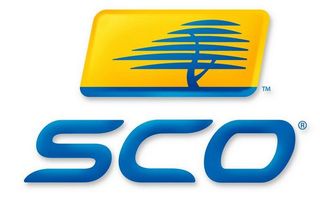SCO hit with Novell court ruling
Court orders SCO to hand over $2.5 million to rival Novell as legal spat over Linux continues.

The latest episode in SCO's journey through the US courts has led to a ruling that SCO must pay $2.5 million (1.25 million) to Novell in restitution for Unix royalties SCO collected from Sun Microsystems without Novell's permission.
SCO initiated its litigation back in 2003, sueing IBM for $1 billion (500 million) in damages on the pretext that it owned the rights to copyrights on the code of Unix, and that IBM had put Unix code into the Linux kernel. No evidence has ever been produced to substantiate this claim, nor is ever likely to be.
Famously, SCO produced an example of "copied code" in August 2003 , which turned out to have been originally written by either Dennis Ritchie or Ken Thompson, (the founders of Unix) under a BSD open source license, and from which, it was alleged, SCO had removed the original license text, violating the original terms of the license. In June, 2008, Judge Brook Wells granted IBM's motion to strike most of SCO's "evidence" for its non-specifity. Wells has observed: "SCO's arguments are akin to SCO telling IBM, 'Sorry, we are not going to tell you what you did wrong because you already know.'"
Nevertheless, SCO distributed a "Letter to Linux Customers" among the chief executives of the top 1500 companies, charging them with "illegally using more than 65 SCO-owned Application Binary Interfaces (ABIs) without permission."
This had a marked effect in some companies, such as Halliburton, where notices were distributed internally warning against the use of Linux in company offices, and led to an impassioned intervention by Novell's chief executive, Jack Messman.
Novell had yet to announce its intention to become a Linux company, but Messman, in the words of Novell's press release, "challenged SCO's assertion that it owns the copyrights and patents to UNIX System V, pointing out that the asset purchase agreement entered into between Novell and SCO in 1995 did not transfer these rights to SCO", and demanded that SCO produce "facts to back up its assertion that certain UNIX System V code has been copied into Linux."
Messman noted: "SCO claims it has specific evidence supporting its allegation against the Linux community. It is time to substantiate that claim, or recant the sweeping and unsupported allegation made in your letter. Absent such action, it will be apparent to all that SCO's true intent is to sow fear, uncertainty, and doubt about Linux in order to extort payments from Linux distributors and users."
Get the ITPro. daily newsletter
Receive our latest news, industry updates, featured resources and more. Sign up today to receive our FREE report on AI cyber crime & security - newly updated for 2024.
Novell's claim to to have retained the the ownership of Unix effectively voided SCO's claims against IBM. Subsequently, Novell registered several Unix copyrights as a statement of intent, and SCO filed suit against Novell, claiming slander of title. Novell's claims, if true, ivalidated its claims against IBM.
Last year, Judge Dale Kimball declared that the Unix copyrights indeed belonged to Novell, and that "SCO is obligated to recognize Novell's waiver of SCO's claims against IBM and Sequent."
Novell intiated the present action to recover $19,979,561 (10 million) paid to SCO for Unix licenses by Microsoft, Sun, and others. On 16 July, the court issued a judgement, published by Groklaw, which waived Novell's claims to monies from the Microsoft and other agreements, but found that SCO had improperly collected Unix royalties from Sun that rightfully belonged to Novell, and ordered SCO to pay Novell $2,547,817 in compensation.
An appeal is possible, even likely, but it is hard to see where SCO can go from here. Pamela Jones of Groklaw surmises: "Winning doesn't seem to matter to SCO, just suing... It is a little hard to avoid the distinct impression of trying to destroy Linux, as opposed to any valid claim of infringement."
SCO still faces counter claims from IBM and Red Hat.




